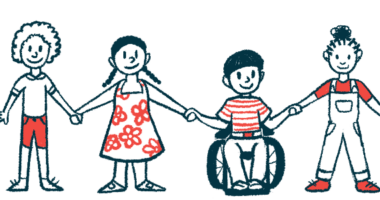FDA Approves Fycompa for Treatment of Focal Seizures in Children Ages 4 and Older

The U.S. Food and Drug Administration has approved Fycompa (perampanel) — alone or as an add-on — for the treatment of focal seizures, which affect only one part of the brain, with or without secondary generalized seizures, in children ages 4 and older.
The approval includes Fycompa administered as a tablet or oral suspension.
“We are excited about the potential of FYCOMPA as an important tool to reduce the incidence of seizures among pediatric patients living with epilepsy. This milestone underscores our commitment to providing treatment options for children with epilepsy for whom there is still a significant unmet need,” Lynn Kramer, MD, chief clinical officer and chief medical officer of Eisai’s Neurology Business Group, said in a press release.
Fycompa, developed by Eisai, is a highly selective inhibitor of AMPA receptors, which are involved in the fast communication pathways between nerve cells in the central nervous system and are a known target for anti-epileptic therapies.
One of the most common causes of so-called breakthrough seizures — seizures that occur after a prolonged seizure-free period — is missed medication doses.
Fycompa has a long half-life, or stability, in this way maintaining relatively stable blood plasma levels in the event of a missed dose.
“Taking an AED [anti-epileptic drug] as prescribed every day is a critical part of reaching the goal of seizure freedom for pediatric patients,” said Jesus Eric Piña-Garza, MD, a pediatric neurologist at Tri-Star Medical Group Children’s Specialists in Nashville, Tennessee.
Fycompa was already approved as an add-on treatment for focal seizures (also called partial-onset seizures) with or without secondary generalized seizures, and for primary generalized tonic-clonic seizures (also referred to as convulsions) in epilepsy patients ages 12 and older.
Data from three Phase 3 clinical studies (NCT00699972, NCT00699582, and NCT00700310) in patients 12 and older with focal seizures were used to extrapolate the therapy’s effectiveness in patients as young as 4.
The therapy’s safety profile was assessed in two studies in children between the ages of 4 and 12. A total of 225 patients were recruited, 110 of whom received Fycompa for a minimum of six months. Of these patients, 21 were treated for more than a year.
The results, soon to be presented in upcoming medical meetings, showed that adverse reactions in this younger patient population were similar to those seen in patients 12 and older.
One of these studies, a currently ongoing Phase 3 trial (NCT02849626), is evaluating Fycompa’s safety and effectiveness in children with focal seizures or generalized tonic-clonic seizures.
After a pretreatment phase where researchers assessed participants’ eligibility, the children undergo a treatment phase divided into three parts — an 11-week titration period, where the therapy’s dose is adjusted according to each child’s clinical response and tolerability, followed by a 12-week maintenance period, and then a four-week follow-up period.
Patients who do not participate in the follow-up will undergo an extension phase where they’ll receive the treatment for up to 29 weeks of a maintenance period, followed by a four-week follow-up.
A real-world retrospective study from Taiwan with adolescents with refractory epilepsy between the ages of 8 and 18 also showed that Fycompa as an add-on therapy effectively reduced seizure rates. Among the participants, six had been diagnosed with Lennox-Gastaut syndrome, five had Dravet syndrome, three had juvenile myoclonic epilepsy, and one had progressive myoclonic epilepsy.
“With FYCOMPA, children and their parents now have a once-daily dosing option with a long half-life that can fit into their increasingly busy lives,” Piña-Garza said.






